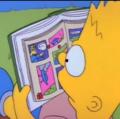Léo Varnet reviewed Babel 17 by Samuel R. Delany
Un classique de la linguistique-fiction
Un grand classique de la linguistique-fiction (cf. l'ouvrage "Comment parler à un alien"), qui s'appuie sur la fameuse hypothèse sapir-whorf selon laquelle le language façonne la pensée et la perception du monde. Cette idée est un peu galvaudée, on la retrouve notamment dans "L'histoire de ta vie" de Ted Chiang, ou dans "L'enchâssement" de Ian Watson, mais il faut rappeler que le roman date de 1966. Delany pointe d'ailleurs lui-même les limites de sapir-whorf : notamment le fait que, quelque soit la langue, il est possible d'exprimer toute idée en utilisant une périphrase plus ou moins longue. Selon notre langue, l'accès à certains concepts nous est donc facilité, mais aucun ne nous est interdit. Fait notable : on doit la traduction française à Mimi Perrin la célèbre chanteuse des Double Six, qui eut ensuite une seconde carrière en tant que traductrice, notamment de SF.














